Although amaHlubi regularly honour their heritage, the government is still to recognise them as a nation with a rightful king, Inkosi Langabilalele II, and their land. (Paul Botes/M&G)
Early on Saturday morning an incessant drizzle showers the land and a dark cover of cloud hangs in the sky. AmaHlubi elders and warriors are braving the elements to embark on a two-hour march up the Ntabamhlophe mountain in the Drakensberg range.
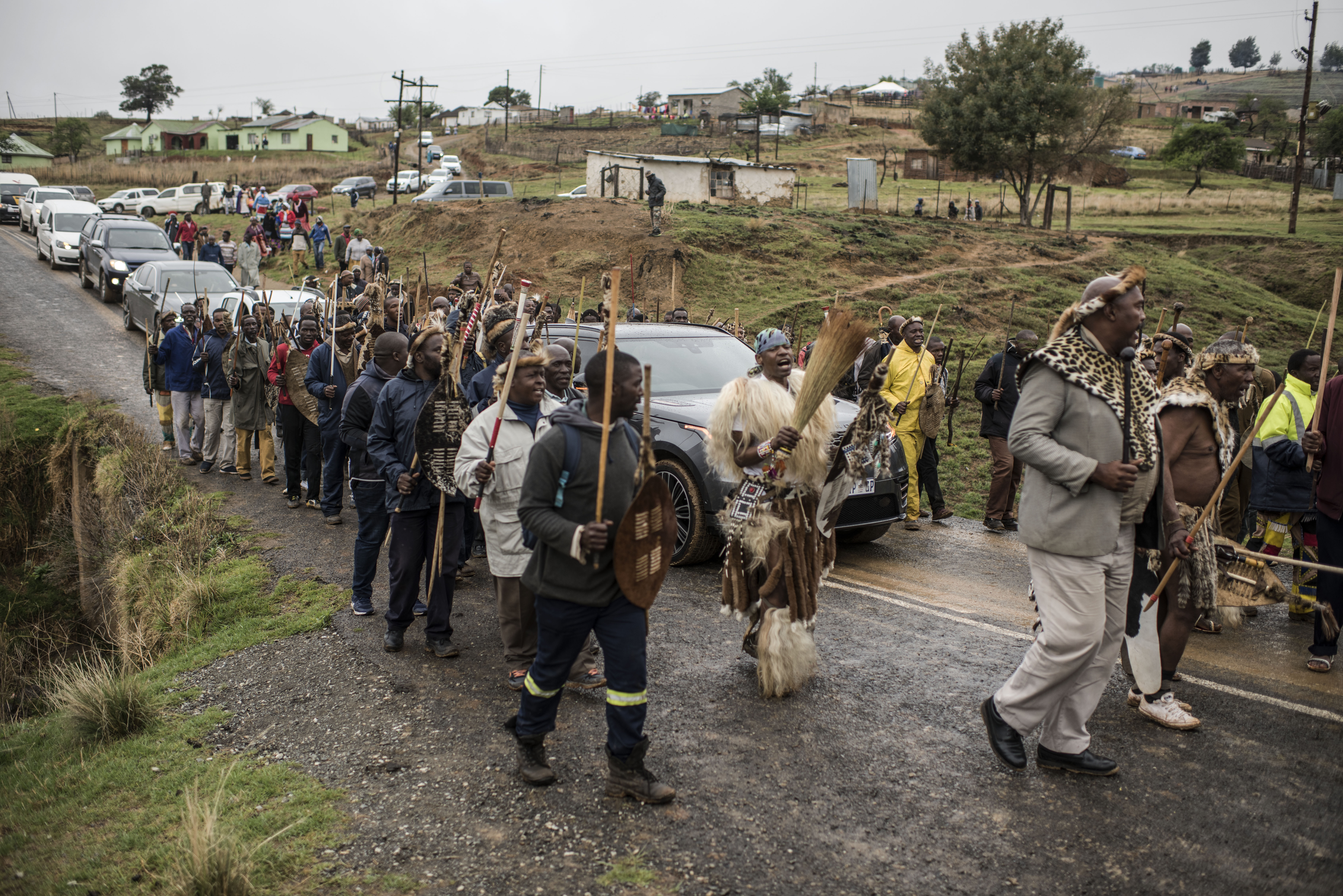
amaHlubi elders and warriors brave the cold to pay homage to their ancestor, King Langalibalele I. (Paul Botes/M&G)
They are on a pilgrimage to pay homage at the grave of one of the nation’s fallen heroes, Inkosi Langalibalele I.
A week earlier, select members of amaHlubi royal family had gathered at the indlunkulu, the royal homestead, in the village of Mahlutshini, to perform sacred rites in preparation for the umgubho wa maHlubi ceremony. These included the sacrificing of a goat and a bull and performing rites at the grave of Langalibalele I, up on Ntabamhlophe.
On the day amaHlubi brave the elements to go up the mountain, four giant marquees are erected on an open grassy field down the road from one of the homesteads of current amaHlubi inkosi, Muziwenkosi Johannes Radebe (Langalibalele II).
The chants of amabutho (warriors), reciting war cries from amaHlubi’s past pulsate through the village, as scores of people, including amaZulu princess Ntandoyesizwe, descend on Mahlutshini for the celebration.
The melancholic, goose-bump-inducing voices of the izimbongi reciting the praises of amaHlubi kings and warriors past add to the colourful orchestra, with the thumping of cowhide drums urging the warriors on as they jab the sky with sticks in song and dance.
Mahlutshini is a picturesque village clinging to the side of a hill that is part of a spectacular amphitheatre of great mountains towering into the sky. It is about 40km south of the town of Estcourt in the KwaZulu-Natal midlands. It is regarded as the ancestral and spiritual home of amaHlubi and Langalibalele I.
Now, more than 140 years since a declaration by the British colonial government dismantled amaHlubi kingship, the nation under Langalibalele II is gearing up for a legal battle to have their kingship restored.
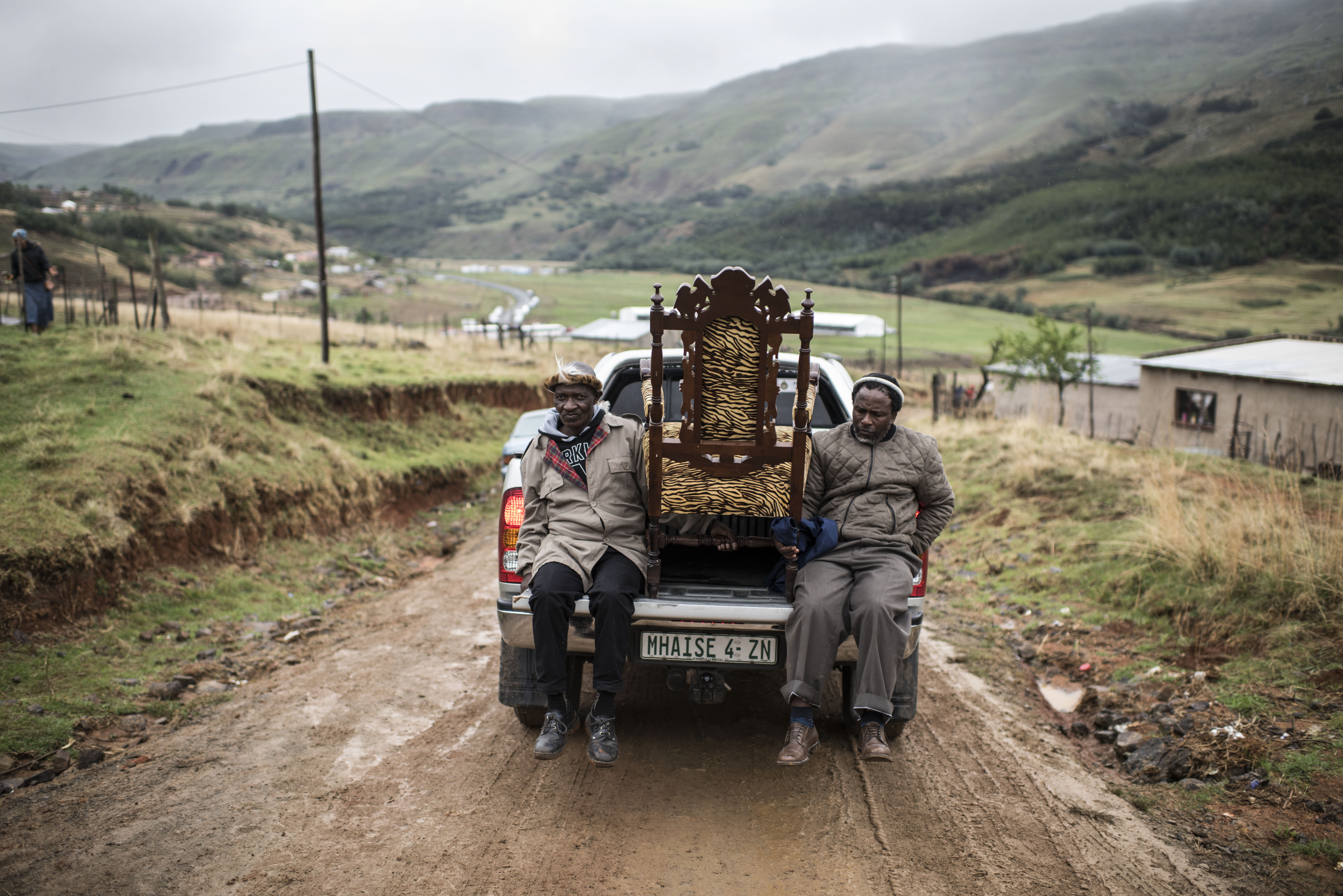
(Paul Botes/M&G)
In 2010 the Commission on Traditional Leadership and Claims ruled that, in terms of the Traditional Leadership and Governance Framework Act (2003, Act 41 of 2003), “amaHlubi do not have kingship … thus, there is no kingship to be restored”. The commission also found that amaHlubi are like several other indigenous peoples of South Africa — semi-independent entities, but not a kingdom.
This technically reduces Langalibalele II to a chief under his more powerful neighbour, King Goodwill Zwelithini of amaZulu.
But amaHlubi are, according to evidence led before the commission, a much older nation than either amaZulu or amaXhosa, and were the earliest rulers and occupants of what the colonials later called the Natal Colony — so they believe they have a strong case.
“Our kingship was taken away by a colonial proclamation that said amaHlubi must cease to exist as a nation. Why did the commission not consider that?” says Sicelo Radebe, spokesman for Langalibalele II, who lodged the initial claim with the commission.
Radebe says they will lodge an application in the high court in Pretoria to have the commission’s decision set aside.
The 1873 proclamation that denied amaHlubi their sovereignty as a nation, and other laws implemented in the years that followed, has had lasting negative consequences that were also noted by the commission.
Langalibalele II has more than 40 amakhosi who pay allegiance to him. They are scattered around KwaZulu-Natal, Eastern Cape, North West, the Western Cape and Lesotho.
This is among the many factors that influenced the commission to conclude that amaHlubi kingship doesn’t exist. In its findings the commission said the Traditional Leadership and Governance Framework Act “does not provide for a senior traditional leader to be under the authority of one king whilst residing in the area of jurisdiction of another”.
The colonial proclamation also endangered isiHlubi language, culture and customs, says Radebe.
“We were forced underground by the proclamation. People had to hide who they were so that they did not get into trouble with the [colonial] authorities back then. That is why we have this challenge today where isiHlubi is not even taught in schools, even though there are still people who speak the language in places like Herschel and Matatiele,” says Radebe.
The commission found that “amaHlubi do not share similar linguistic and cultural affinities” and that “they have been subsumed into traditional communities within which they reside”.
As a result, only a few isiHlubi speakers remain in areas such as Matatiele, Kokstad and Herschel. The majority of amaHlubi have adopted isiZulu and isiXhosa, and others speak isiNdebele, Sesotho and Setswana.
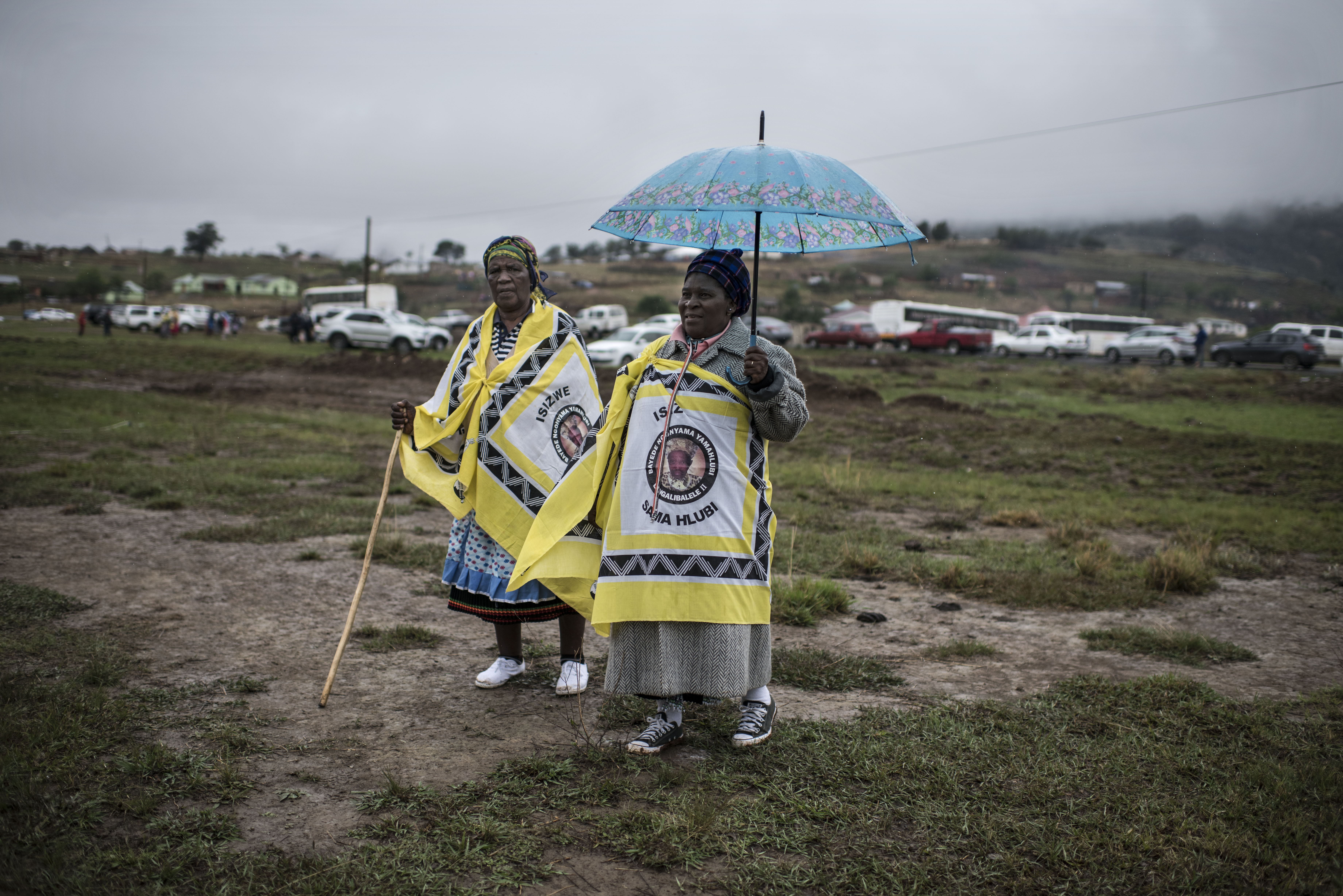
(Paul Botes/M&G)
But Radebe says attempts are at an advanced stage to revive the isiHlubi language through the Hlubi Language Board.
The battle for recognition is also key in their battle to recover the land taken away from the nation by successive colonial regimes, including the Union of South Africa and the apartheid government.
Radebe says the nation is still awaiting the finalisation of its claims on land that include the Midlands towns of Newcastle, Colenso and Ladysmith. He says the claim on land stretching from Giant’s Castle to Winterton has been settled.
The land they wish to claim includes prime agricultural land, coal mining areas, tribal trust land and high-density townships and villages.
“We wish for the land to be returned to amaHlubi. The recognition is key, because in our culture a king is king through his people. How can we be kings without land? History has shown that we were dispossessed by the British and we are looking to the government to resolve this issue of land,” said Radebe.
Some of the land claimed by amaHlubi now falls under the Ingonyama Trust, which administers land on behalf of Zwelithini. Historically, amaHlubi have enjoyed a cordial relationship with amaZulu, and the elite iziyendane regiment even served in the army of the nation’s founder, Shaka Zulu.
The matter is considered somewhat sensitive given the heated debate about the issue of land under the Ingonyama Trust, but Radebe says, although amaHlubi would love to have their land back, this does not mean they have any hostility toward the Zulu king.
“We are not fighting with amaZulu. We are great allies. That is why we want to resolve the issue of the recognition of our kingship, then let’s sit down and see how we can resolve that [the land issue]. We must not destroy the relationship built by our kings in the past,” says Radebe.
Yet, hostilities over the land issue simmer in the background. In 2012 the Ingonyama Trust won a case in the high court in Pietermaritzburg against the amaHlubi chief BG Radebe and amaHlubi Traditional Council in the Newcastle area.
The trust had brought an application in which it sought an order that would declare it “the only recognised and legal entity, authorised and entitled to grant rights and allocations or permissions in respect of the ownership or occupation and use of land presently registered in its name throughout the province of KwaZulu-Natal”.
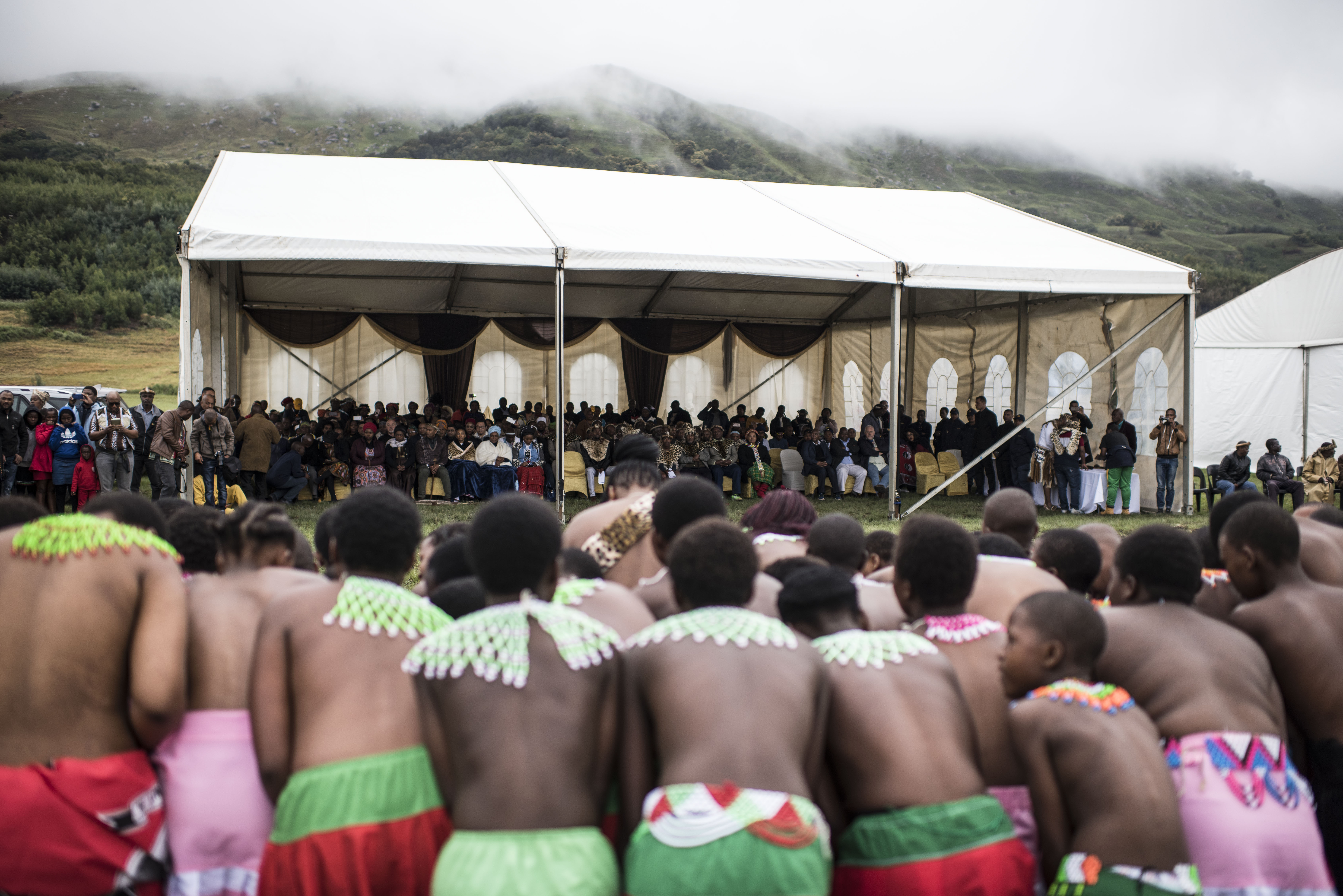
(Paul Botes/M&G)
Wiseman Ngobese, one of the organisers of amaHlubi’s umgubho ceremony, says the resolution of the kingship matter will set the tone for tackling the land issue.
“King Langalibalele II is very clear on the land issue. He said the issue of land needs to be debated thoroughly and it makes sense if government puts it this way to say the land must return to its rightful owners, but then afterwards there needs to be a discussion as to who are the rightful owners,” says Ngobese.
Last Friday amaHlubi won a legal battle against Bryce Mthimkhulu in the high court in Pietermaritzburg. Mthimkhulu claimed he was the rightful king of amaHlubi and has even established his own palace and royal council.
Langalibalele II took him to court, which ordered that he refrain from referring to himself as amaHlubi king and acting and presenting himself as one.
Now Langalibalele II and his people wait for the wheels of justice to roll into motion and decide whether they remain a nation without a king, or whether what was taken away from them more than a century ago will be restored. — Mukurukuru Media
Who are amaHlubi?
According to historical evidence presented to the Commission on Traditional Disputes and Claims, amaHlubi originate from the Samburu and Shubu people found in present-day Kenya.
They are a much older nation than either amaZulu or amaXhosa. The earliest known amaHlubi inkosi, who ruled the nation around 1300, was Chibi.
The nation formed part of the eMbo people’s downward migration from central Africa.
They were the largest group of this migration and were also known as amaNgelengele, amaMpembe or imiHuhu. It was in about 1650 that their name changed to amaHlubi.
During their downward migration, they at first settled briefly along the Lubombo mountains, a range extending from the north of present day Kwazulu-Natal to the Swaziland-Mozambican border.
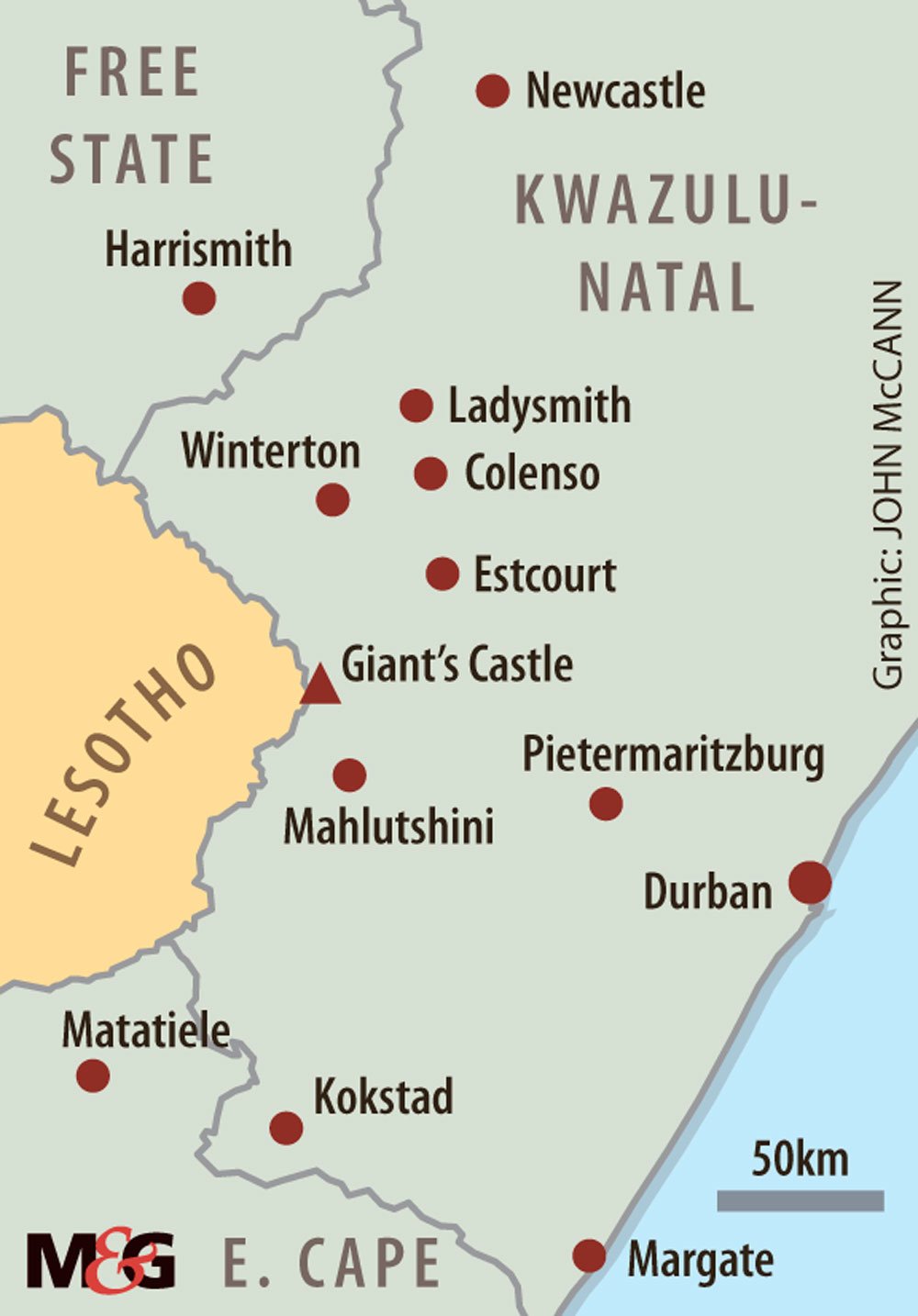
During the 13th century, some of them moved south and settled in present-day Kwazulu-Natal. Those who stayed behind became known as amaSwati.
It is estimated that amaHlubi moved to the uMzinyathi (Dundee) region in about 1500.
It is believed that different tribes and clans joined amaHlubi because they were blessed with the gift or rainmaking and knowledge of traditional medicines.
During the reign of Shaka Zulu, amaHlubu lived peacefully with amaZulu as their neighbours.
Shaka’s mentor, Dingiswayo, even sought shelter from them when he was on the run from his father Jobe. During his stay with the amaHlubi, Dingiswayo was appointed as induna by Bungane, their king.
During the reign of Mthimkhulu II, amaNgwane attacked amaHlubi and killed their king . Consequently, Shaka attacked and conquered amaNgwane. — Source: Commission of Traditional Leadership and Claims
Lay of the land
According to evidence submitted to the commission, amaHlubi occupied the territory that was marked by the Pongola River on the northeast border, beyond Blood River (Income), extending south to where Umzinyathi and Tugela rivers meet and further south to the Bushmen River and the Drakensberg, which made up the western border.
The area includes the present day towns of Charlestown, Volkrust, Newcastle, Madadeni, Utrecht, Wakkerstroom, Paulpieterburg, Vryheid, Weenen, Dundee, Nquthu, Glencoe, Harrismith, Van Reenen, Ladysmith, Colenso, Winterton, Escourt, Hammarsdale and Pietermaritzburg.
King suffered with his people
Inkosi Langalibalele I, who was banished to life imprisonment on Robben Island by a kangaroo court of British colonial officials in 1874, remains a cult figure in amaHlubi history.
“He had the gift of bringing rain. He had 46 wives and more than 150 children. He built the [amaHlubi] nation,” says amaHlubi royal imbongi Bheki Radebe, resplendent in a leopard kaross, cowhide shield and sticks carried by amabutho (warriors).
Langalibalele defied the British colonial regime and refused to submit to its attempts to force him to register the guns in his nation’s arsenal. The guns had been supplied by his subjects who worked on the diamond mines in Kimberley. Instead, he waged an armed rebellion against the British, putting him in an elite league of African freedom fighters who chose to take up arms rather than submit to the colonial invaders.
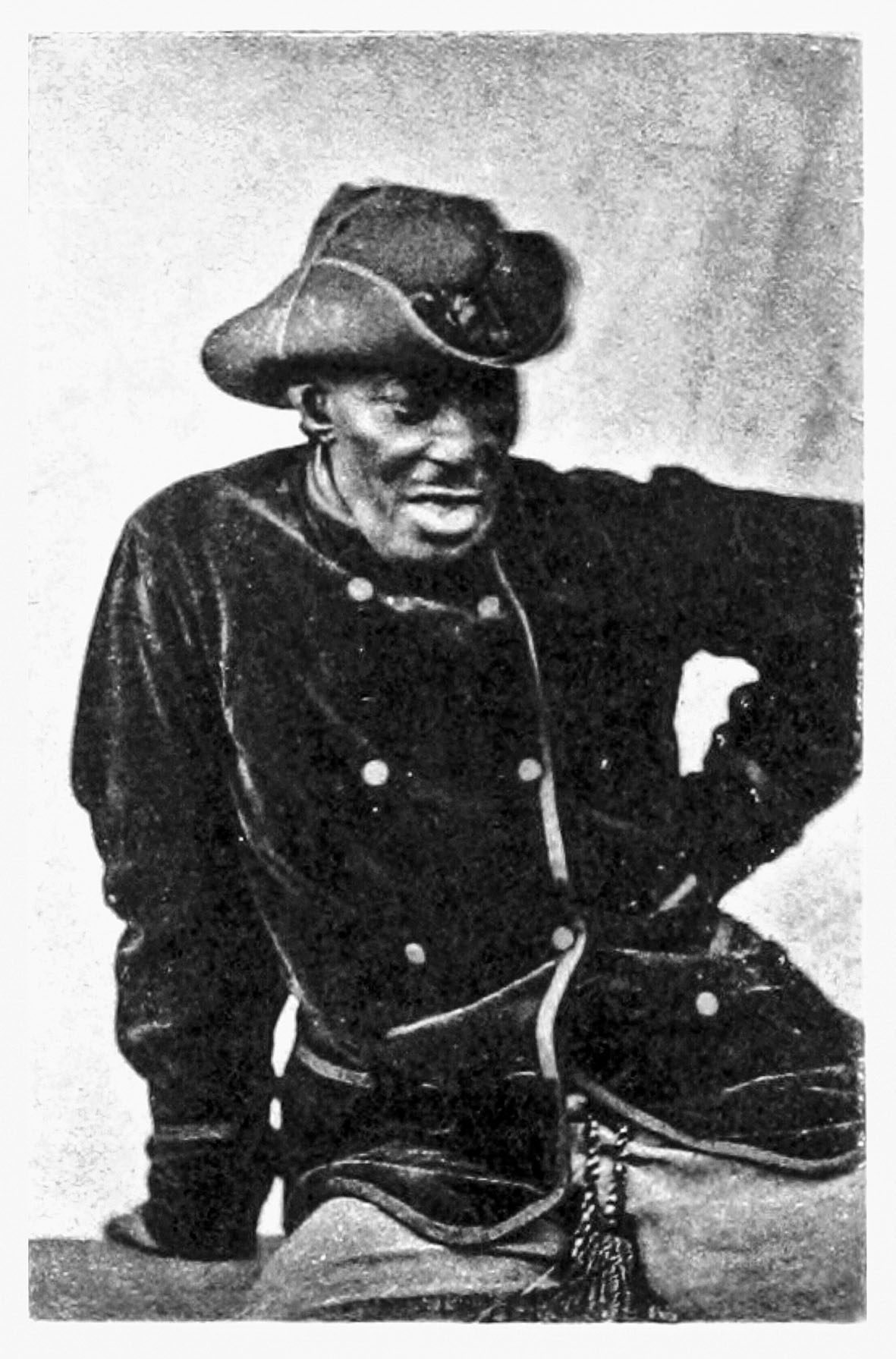
As a result, the British colonial regime imposed martial law in an attempt to capture Langalibalele, who had fled to Lesotho. He was arrested there, brought back to his land, tried in a court in which he was refused representation and sent to Robben Island.
He was eventually released from the island but remained banned and confined to the Cape Colony until 1887 when he was allowed to return to Natal. He died two years later, a king whose kingdom and power had been looted by an invading colonial force.
“He was persecuted by the British because of his love for his nation. He refused to submit to them when they said his people should return their guns. He said: ‘If my people are killed I will die with them,’ ” says Radebe.
Langalibalele is held in such high esteem that even the local municipality, which falls under the uThukela (Ladysmith) district, is named after him.